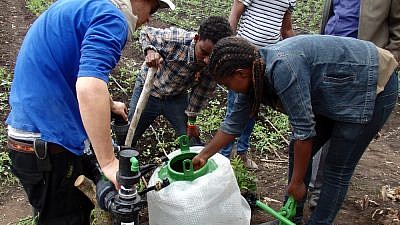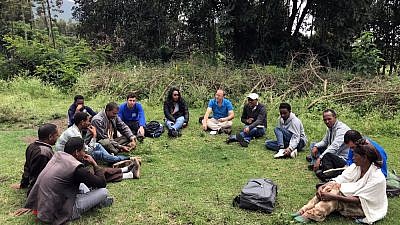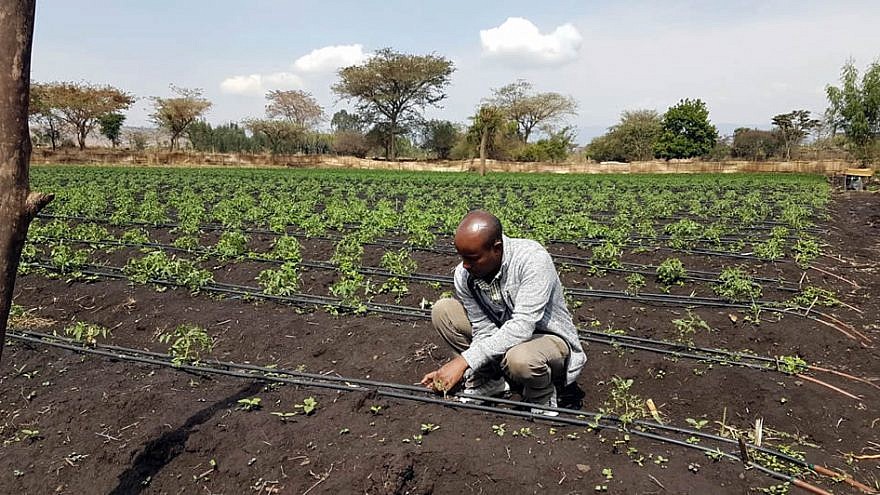The American Jewish Joint Distribution Committee launched Tikkun Olam Ventures (TOV), an innovative new program addressing poverty among Africa’s smallholder farmers by leveraging Israeli agricultural technology and training, Jewish philanthropy and private capital, and access to new markets for crops.
Initiated with a two-year pilot in Ethiopia, TOV currently has seven demonstration sites growing vegetables in the country’s Southern Nations, Nationalities and People’s Region. Inspired by Seth Merrin—founder and CEO of the fintech company Liquidnet, which provided the anchor grant for TOV through its corporate impact program, Liquidnet for Good—JDC partnered with other leading American Jewish philanthropists, and Israel’s Ministry of Economy and Industry, to bring the program to fruition.

Makuria hopes that TOV can expand this knowledge, and its ability to fight poverty beyond his community.
“We’re incredibly proud to empower the developing world by deploying Israel’s leading agricultural expertise and the impact-driven philanthropy of the Jewish community,” said JDC CEO David M. Schizer. “By partnering with smallholder farmers—among the 1.5 billion people worldwide still using traditional farming methods—we’ll fight poverty, empower women and young people, and bolster economic growth. Our work underscores the commitment of the Jewish people and Israel to repair our world, support our neighbors in need, and build meaningful bridges of knowledge and connection benefiting humanity for generations.”
TOV’s operating model is based around a philanthropic loan fund—created with lead support from Seth Merrin and Liquidnet for Good, Laura Gurwin Flug and Danielle Flug Capalino—leveraging monies from a local bank. Loans to farmer cooperative unions and agribusinesses at reasonable terms allow smallholder farmers to purchase Israeli AgTech, and receive training and support from Israeli and local experts. Their higher-quality crops are then sold to new markets at fair pricing. Repaid loans feed back into the philanthropic loan fund for use in catalyzing new markets in TOV locations in the future.
“The power of TOV is its unique ability to match the passion of the Jewish community for tikkun olam, repairing the world, with a unique philanthropic model and Israel’s critical expertise in transforming rural economies through technology. Right now, we are focused on lifting the lives of these farmers and their communities, but we also want to take what we have learned, share it and scale it for global good,” explained Merrin. “TOV is a promising model for mobilizing private capital for the public good.”
During the pilot, TOV will invest in five to 10 agricultural enterprises, supporting more than 300 smallholder farmers. Pilot sites will include Israeli drip-irrigation equipment and other technology, hybrid seeds, and specialized training in new technology and improved agricultural practices. In the first five years, the program aims to reach 5,000 farmers, and aid 22,000 of their family and community members.

TOV is a program of JDC GRID, the organization’s platform for deploying disaster response and development interventions around the world, utilizing Israeli expertise, and encouraging Jewish community engagement in humanitarian efforts locally and globally. JDC has a decades-long presence in Ethiopia providing health, education and water projects for rural and often impoverished populations.























